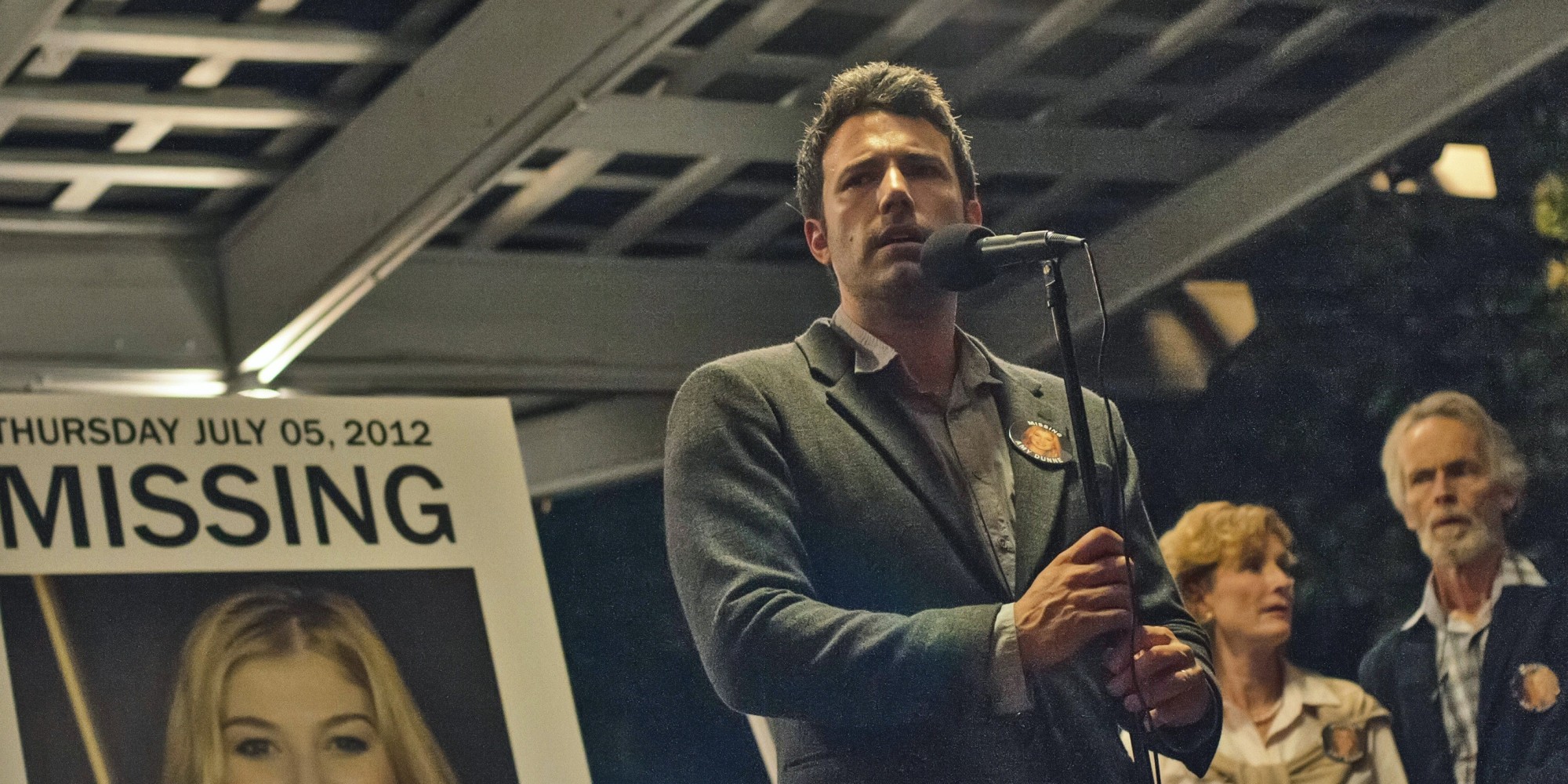
The couple at the heart of Gone Girl (2014) is no different. Nick (Ben Affleck) and Amy (Rosamund Pike) Dunne are the perfect urban, beautiful, intellectual couple of America. Both are writers, but are soon hit hard by the economic recession. They are forced out of New York and back to Nick’s Missouri hometown. Through alternating scenes of the present, told in Nick’s point of view, and the past, told through Amy’s diary, a picture of this five year marriage is sketched out. The present, dominated by Nick, is terse, straightforward, and lit with a golden framing. Conversely, Amy’s past is soft blue and cold—a past when both were happy—a past that no longer exists.
Within 48 hours, search parties and donation headquarters are underway; “Amazing Amy’s” face is plastered all over America, and television news pursues the subject nonstop. As Nick feels the heat and the pressure of his crumbling marriage, this dire situation, and the hawking eyes of the media, evidence begins to emerge with the haunting message: did Nick Dunne kill his wife?
Shot with the expertise of cinematographer Jeff Cronenweth, Gone Girl is all muted colors, dim lighting, and intimate close-ups. While at points the story may seem slow, or even dragging, all scenes are incredibly necessary for the narrative. This being said, shocking revelations await viewers at every turn, and unreliable narration reaches new heights in this film.
With an excellent screenplay written by the novelist Gillian Flynn herself, the only weak areas appear to be the eerie “emptiness” of the entire film, as well as Amy’s high school ex-beau Desi Collings (Neil Patrick Harris). Yet these are hardly weaknesses, we know—the awkward Desi is supposed to be awkward. And the emptiness which reverberates throughout the whole story—this negative space is what holds it together, makes it complete.
As marriage and modern relationships are lit up under the scrutiny of popular media—and Flynn’s uncompromising gaze—the pieces of the puzzle begin to fall together and the large picture feels an awful lot like social commentary. But still, the image remains unclear; the answers only ever floating in half-existence: How well do we really know the one we love? What are you thinking? Who are you? What have we done to each other?
Gone Girl may not answer these questions, but in asking them it delivers one thrilling and unforgettable experience. If you have the time, check it out at the Princeton Garden Theatre!
Verdict: 4.5/5




